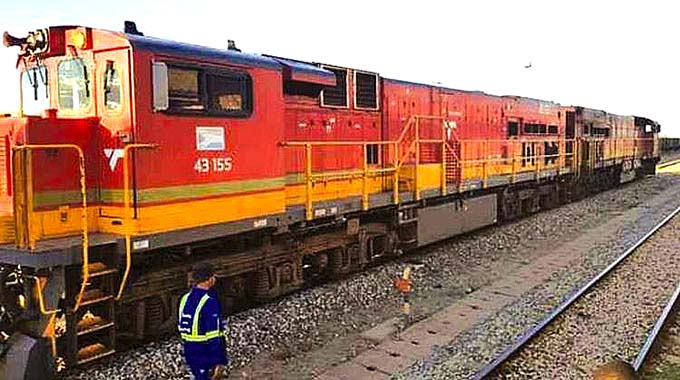DIDG ‘hopeful’ of an agreement with NRZ
The Diaspora Infrastructure Development Group (DIDG) is optimistic of an agreement with Zimbabwe over the collapsed US$400 million deal to revive the National Railways of Zimbabwe (NRZ), its chief executive said, describing ongoing negotiations as “very positive.”
“At the moment, the conversations are cordial,” Donovan Chamhandamba told Business Weekly in an interview. “From our side, we are very hopeful to reach an agreement.”
DIDG entered into a joint venture with South African logistics group and won the bid to help revive the struggling national rail operator in August 2017, but the Government terminated the deal in October 2019, blaming the investors for failing to provide a viable funding plan. The Government owns 100 percent of NRZ.
The termination of the deal saw consortium partners slapping NRZ with a massive US$235 million lawsuit for cancelling the deal. The Government’s legal representative Dube, Manikai and Hwacha recently renounced urgency. Muza and Nyapadi Legal Partners are now representing Government. “There are behind the scene negotiations and the instruction I have is to hold on to the lawsuit,” Muza said.
“In the event they agree, there won’t be any need to proceed with court battles.” Recently, Minister of Transport and Infrastructural Development Felix Mhona, confirmed to Business Weekly that efforts were being made to resuscitate the deal.
“They wrote to the Ministry indicating the intention to revive the deal and that process is already underway,” said Mbona. “But obviously there are things that needs to be dealt with including court issues because as it stands now, they haven’t withdrawn the lawsuit. “It is process that has just began and we will allow the process to flow so that we will not jeopardise it, Mbona added.
Background
The government said the decision to cancel the deal came after the consortium partners missed the deadlines to provide a viable funding plan. This was after the initial framework agreement in which negotiations were to be concluded expired in February 2019.
This was extended by six months in which, the investors managed to secure funding with the African Export-Import Bank appointed lead arranger for the transaction.
In a letter to NRZ chairman Advocate Martin Dinha in August 2019, DIDG executive chairman Chimhandamba said funding for the project had been secured.
“Following the extension of the framework agreement by the Government of Zimbabwe by a further six months from 15 February 2019, we are pleased to confirm that as the Diaspora Infrastructure Development Group have raised the required US$400 million funding for the NRZ recapitalisation project, including an additional US$20 million to
address start-up and working capital requirements of the Joint Venture Concession Company,” said Chimhandamba said.
“We also confirm that as DIDG, we have our shareholder approvals and we are ready to proceed with the implementation of the project. We are also pleased to inform you that as DIDG we have appointed the African Export-Import Bank as our mandated lead arranger for the NRZ US$400 million recapitalisation project.”
The deal was, however, subject to signing the joint venture agreements, which would have paved way for opening company accounts and appointment of a transitional executive including non-executive chairman, interim chief executive officer as well as finance, technical and human resources executives. The release of the funds would have
been subject to obtaining approvals including the consents, authorisation, licenses and certificates from the appropriate authorities and institutions.
Weak financial position
Low availability of locomotives, rolling stock and the old and poorly maintained track systems have been among the main causes of the decline in service levels of the railway.
The substantial deterioration in locomotives, wagons, and coaches over the past decade was partly due to inadequate maintenance and non-replacement of obsolete assets that, in turn, stemmed from the weak financial position of the NRZ.
During the first half of the years, the NRZ lost over $1,6 billion in potential revenue from across its different customers due to the adverse effects of Covid-19.
Chairman Advocate Martin Dinha said during the first quarter ended March 31, 2021, NRZ lost $516,4 million in potential revenue while $1,143 billion was lost in the second quarter on account of the Covid-19 pandemic’ direct and multiplier effects.
In 2020, the company moved 2,5 million tonnes of cargo down from 2,8 million tonnes a year earlier and the dip in freight volume was largely been attributed to the pandemic.
This year, NRZ was targeting to move 4,5 million tonnes of cargo.-ebusinessweekly.cl.zw










